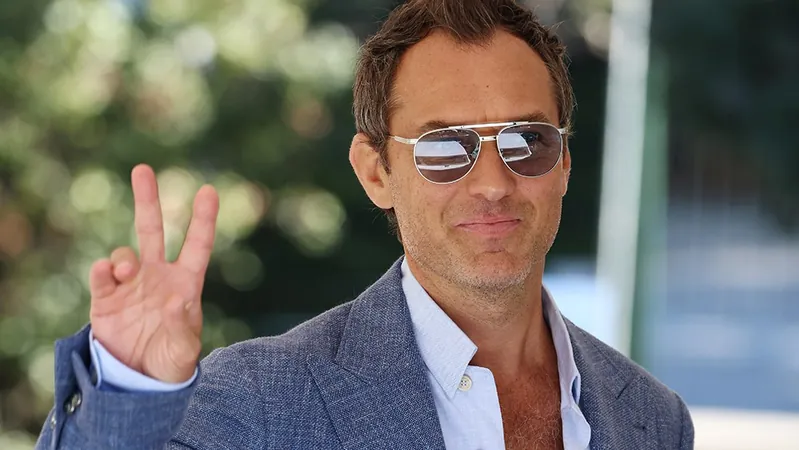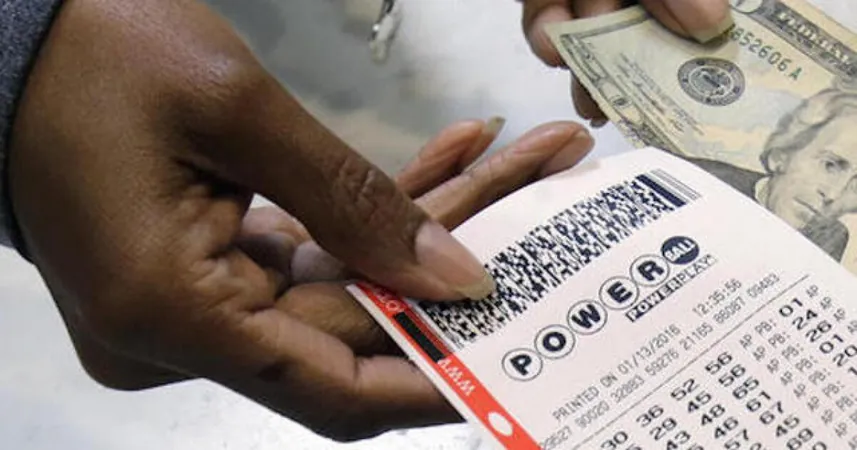
Film Industry Divided: Israeli Creators Respond to Boycott Oath Amid Gaza Crisis
2025-09-09
Author: Ying
The Pledge That Shook the Film World
In a bold move that has sent ripples through the global film industry, around 1,800 prominent filmmakers and actors have signed a pledge to boycott Israeli film institutions they accuse of complicity in human rights abuses against Palestinians. The initial wave of signatories included renowned figures like Ava DuVernay, Mark Ruffalo, and Tilda Swinton, with an additional 600 joining their ranks soon after.
A Call for Change Amid Crisis
The pledge stresses the power of cinema to influence perceptions in these urgent times. It specifically calls upon the film industry to refuse partnerships with institutions it believes are enabling the crisis in Gaza, emphasizing a moral obligation to act against perceived injustices.
Israeli Filmmakers Push Back
However, these calls for a boycott have sparked strong reactions from the Israeli film community. Nadav Ben Simon, the head of the Israeli screenwriters’ guild, described the boycott as 'deeply troubling' and counterproductive. He argues that Israeli creators have consistently worked to amplify diverse narratives, including Palestinian stories, and collaborate with Palestinian colleagues.
The Artistic Landscape: A Complex Reality
Ben Simon expressed dismay that the pledge oversimplifies the realities of Israeli artists, who critically engage with their society through their work. He stated, 'We will continue to promote dialogue and strive for peace,' underscoring that artistic expression should serve as a bridge, not a barrier.
Beneath the Surface: Artistic Responsibility vs. Political Actions
The conversation around the boycott raises complex questions about the intersection of art and politics. Many Israeli artists feel caught in a struggle where they face pressure from both their own government and international critics. They argue that silencing artistic voices only hinders peace efforts.
War's Toll on Culture
Highlighting the severe impact of ongoing conflict, statements from industry leaders indicate that the war in Gaza is not only claiming lives but also destroying international collaborations in culture and cinema. They argue that a boycott risks annihilating the very dialogues needed to navigate this turbulent landscape.
A Divergent Perspective
Interestingly, some Israeli filmmakers, like Avigail Sperber, initially reacted with shock but then reconsidered their stance. Sperber acknowledged the pledge's potential short-term effects on domestic cinema but emphasized the urgency of addressing systemic issues, stating, 'The cost is worth the chance of ending this bloodshed.'
The Weight of Cultural Responsibility
The original pledge from 'Film Workers for Palestine' condemned the majority of Israeli film entities as complicit in denying Palestinian rights. This aggressive stance inevitably raises the stakes for both creators and audiences, shaping the future of Israeli cinema.
Looking Ahead: The Future of Israeli Cinema?
As the Israeli film industry navigates these turbulent waters, the implications of this boycott will likely resonate extensively, influencing not just the art produced but also the ongoing dialogue about identity, culture, and political responsibility in an ongoing conflict.
A Cinematic Crossroads
With Israeli cinema grappling with its identity amid crises, filmmakers may find themselves at a tipping point. They face choices that could redefine their role, responsibilities, and the power of their narratives on the world stage.




 Brasil (PT)
Brasil (PT)
 Canada (EN)
Canada (EN)
 Chile (ES)
Chile (ES)
 Česko (CS)
Česko (CS)
 대한민국 (KO)
대한민국 (KO)
 España (ES)
España (ES)
 France (FR)
France (FR)
 Hong Kong (EN)
Hong Kong (EN)
 Italia (IT)
Italia (IT)
 日本 (JA)
日本 (JA)
 Magyarország (HU)
Magyarország (HU)
 Norge (NO)
Norge (NO)
 Polska (PL)
Polska (PL)
 Schweiz (DE)
Schweiz (DE)
 Singapore (EN)
Singapore (EN)
 Sverige (SV)
Sverige (SV)
 Suomi (FI)
Suomi (FI)
 Türkiye (TR)
Türkiye (TR)
 الإمارات العربية المتحدة (AR)
الإمارات العربية المتحدة (AR)